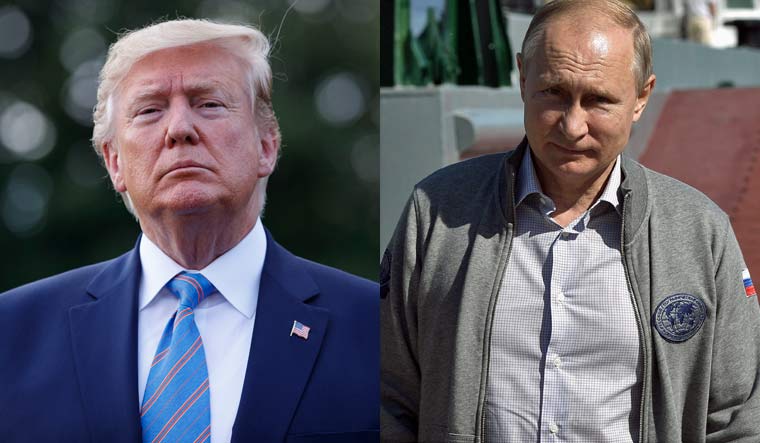The United States under President Donald Trump on August 2, 2019, withdrew from the 31 year-old landmark Intermediate-Range Nuclear Force (INF) Treaty. The collapse of this Cold War-era nuclear arms treaty signals a decline not only for US-Russia relations but also for the European security paradigm and various non-proliferation endeavours.
The announcement regarding the American withdrawal was made on February 2019 by President Trump in a written statement issued by the White House which stated, “…the United States will suspend its obligations under the INF Treaty and begin the process of withdrawing from the INF Treaty, which will be completed in six months unless Russia comes back into compliance by destroying all of its violating missiles, launchers, and associated equipment.” This declaration regarding the withdrawal was made after America’s allegations against Russia for development and testing systems that were ‘banned’ under this treaty.
In 2014, president Barack Obama accused Russia of breaching the INF treaty by developing missile technologies; however, no action was taken by him in this regard fearing the risk of an arms race in Europe. Shortly after the US decision to withdraw from the treaty, Russian President Vladimir Putin also suspended Russia’s obligation.
However, there is speculation amongst pundits of international relations that Russia might utilise this opportunity for updating and amplifying its weapons and missile systems, which it has been unable to do under this treaty. At the same time, another assumption regarding withdrawal seems to be drawing from a growing Chinese military presence and assertiveness.
There is an argument being made in American domestic political circles that the US needs to deploy conventional ground-based, intermediate-range missile systems against China, which INF Treaty prohibits. In addition to this, as Beijing is not a party to the treaty the People’s Liberation Army (PLA) has a tremendous advantage in such a scenario.
Signed in 1987 between the US and Russia, the treaty was aimed to eliminate nuclear and conventional ground-launched ballistic and cruise missiles with a range between 500 to 5,500 kilometres. Furthermore, it called for the destruction of existing systems leading to the dismantling of some 2,692 missiles by both countries. It included within its verification requirements that laid the groundwork for future arms reduction treaties.
Undeniably, it was the only nuclear arms control treaty that eliminated an entire class of existing weapons at that time. There are now growing concerns that the historic achievement of this treaty, to reduce the stockpile of both Russia and the US by almost 80 percent, is now endangered due to American withdrawal. Although the treaty was signed between the US and Russia, it had a significant impact on non-signatory countries such as America’s NATO allies and partner countries.
Not being a signatory to INF treaty makes these European allies realise that they are not empowered enough to pressurise either US or Russia for solutions regarding the proliferation of weapons. At the same time, the treaty was more of a political symbol only for these European nations. The reason being that these nations fall within the range of Russian conventional missile systems.
Without the INF Treaty in force, there are apprehensions amongst European allies that Russia could freely field an unlimited number of the allegedly developed intermediate-range cruise missiles in the vicinity of Europe. Where, on the other hand, NATO has neither offensive nor defensive capabilities in place in the region to credibly respond in the short term.
This withdrawal has made both Germany and France particularly concerned about the disassociation of the US and European security interests. At the same time, the European allies have been quick in pointing out this as a “mistake” of the President trump’s administration. An important aspect of US withdrawal is China. China is not a signatory of this treaty and therefore it is not bound by its terms and regulations. It is developing and deploying missile altering the military balance in East Asia and beyond.
There have been several missiles in Chinese inventory which can violate the norms of INF treaty had China been the member of this agreement. This eventually leads to security concerns amongst the US policymakers leading them to believe that any arms control agreement in the future can only be successful with China's participation. One can assume that these security concerns further pushed the US to unilaterally withdraw from the treaty.
With the collapse of the INF treaty, the only bilateral arms control option between the US and Russia is a new START which also expires in 2021. There is little indication that the US would renegotiate the START. At the same time, there is a question mark on the arms control regime in the absence of the INF treaty between the US and Russia. In such a scenario there is a need for the robust and innovative arms control initiative.
The author is associate fellow, Centre for Air Power Studies, Delhi



